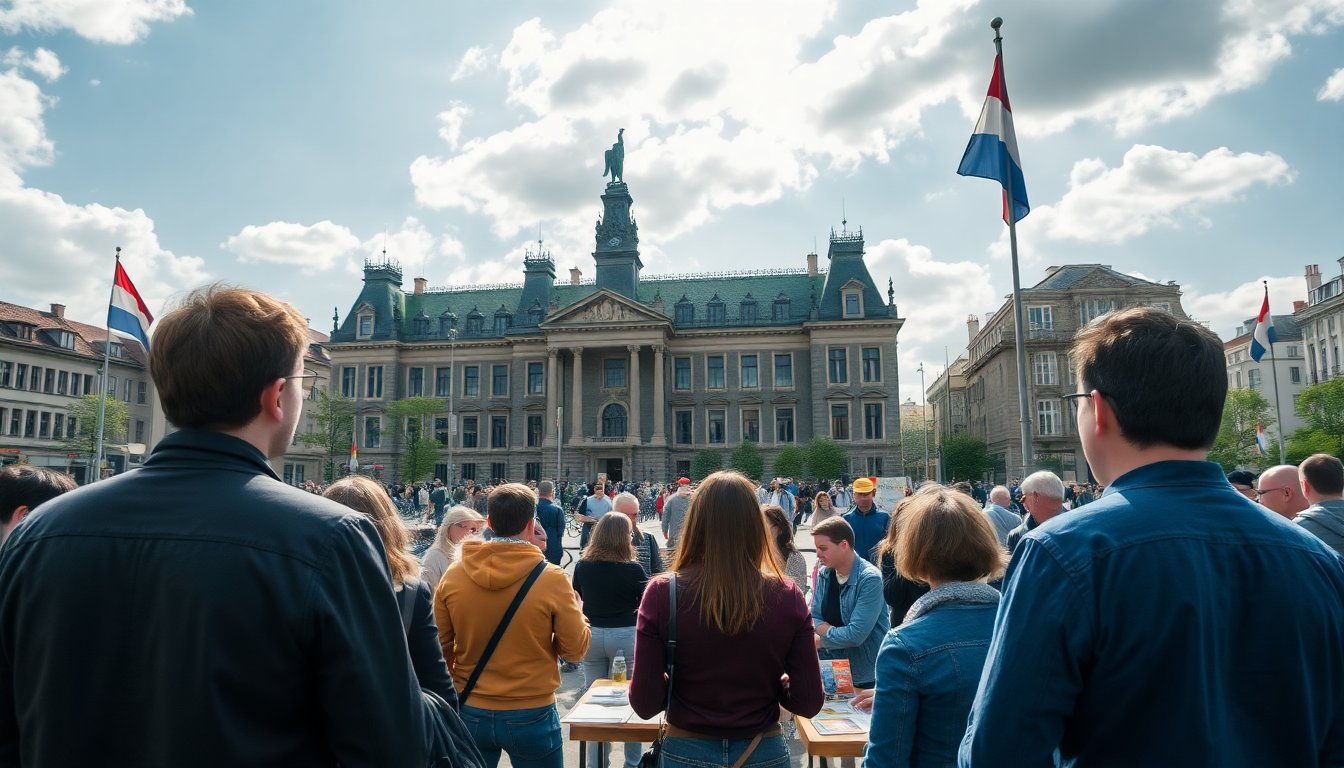Table of Contents
Political transformation in the Netherlands following recent elections
The political landscape in the Netherlands has seen significant changes after the latest elections, where voters expressed their preferences in a highly competitive environment. The centrist party, D66, under the leadership of Rob Jetten, achieved a remarkable increase in parliamentary representation, nearly tripling its number of seats.
In contrast, Geert Wilders’s right-wing party, the Partij voor de Vrijheid (PVV), experienced a notable decline, losing its status as the leading party. This shift highlights the evolving dynamics within Dutch politics and the electorate’s changing sentiments.
Election results overview
The election results have revealed a closely contested outcome. Both the D66 and the PVV secured 26 seats in the lower house of Parliament. However, the election dynamics indicate a significant shift: Wilders’s party lost 11 seats, showing a 6.9% decline in voter support.
In contrast, Jetten’s D66 gained 17 seats, representing a 10.6% increase in favorability. The final numbers are still being determined as the counting process continues, with overseas votes expected to finalize the tally.
The implications for governance
The decision on who will form the next government remains unresolved, with only a few thousand votes separating the two leading parties.
The political stakes are significant, and the competition between Wilders and Jetten is expected to influence the future of Dutch governance. As the official results await confirmation, Wilders utilized social media to assert that the PVV is prepared to take on the responsibility of government formation.
He urged Jetten to abstain from premature consultations until all votes are accurately counted.
A shift in political sentiment
The election outcomes indicate a broader trend within Dutch society, suggesting a retreat from radical and anti-European Union sentiments. Following the vote, Jetten expressed optimism, stating, “The positive forces have prevailed.” This statement resonates with numerous voters who view the D66 victory as a move toward a more inclusive political atmosphere.
Voter perspectives
Public reactions to the election outcomes have been diverse, with many expressing relief at the decline of the far-right agenda. “There seems to be a polarization in our politics,” stated Tijs Heemskerk, a 29-year-old voter. He pointed to the emergence of a stronger centrist party as a positive development for the nation. Similarly, 60-year-old Hugo van Bergen emphasized the importance of having an experienced leader like Jetten, suggesting that this could lead to a broader centrist coalition capable of addressing various national issues.
In contrast, some voters, such as 19-year-old Kiki de Waart, recognized the unexpected success of the D66 but expressed caution, noting that the political landscape still includes many right-leaning elements. These mixed feelings highlight the complexities of Dutch politics, where the struggle for ideological dominance persists.
Future prospects
The political community in the Netherlands is preparing for a period of negotiation and coalition-building as final election results are anticipated. The rise of the D66 party raises hopes for a government focused on progressive policies that counter the growing influence of far-right rhetoric. This election serves as both a referendum on current leadership and a reflection of the Dutch citizens’ demand for a more balanced political discourse.
The coming weeks will be critical for forming the new government and shaping the future of Dutch policy-making. Rob Jetten’s ambition to become the youngest prime minister in Dutch history positions him as a key figure in fostering a government that represents the interests of all citizens.





